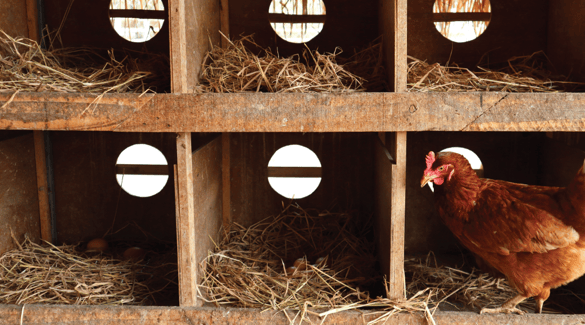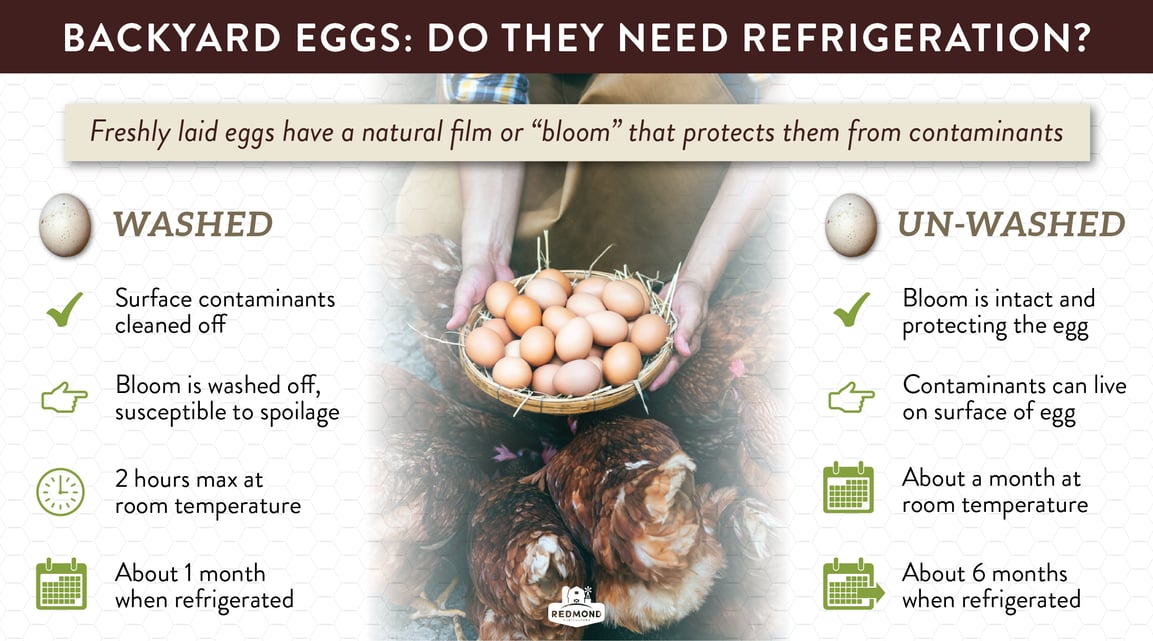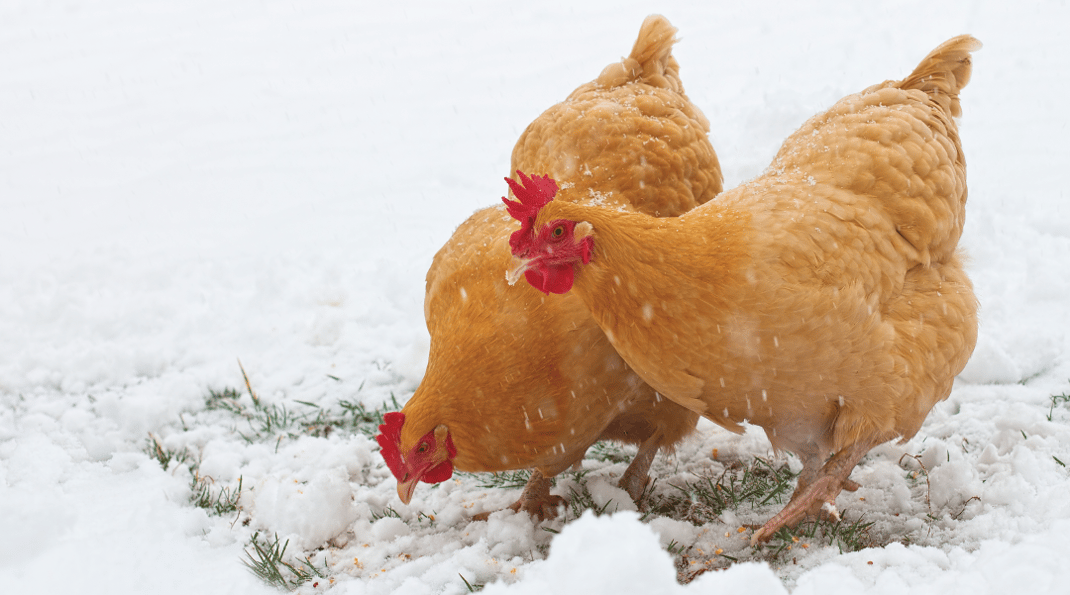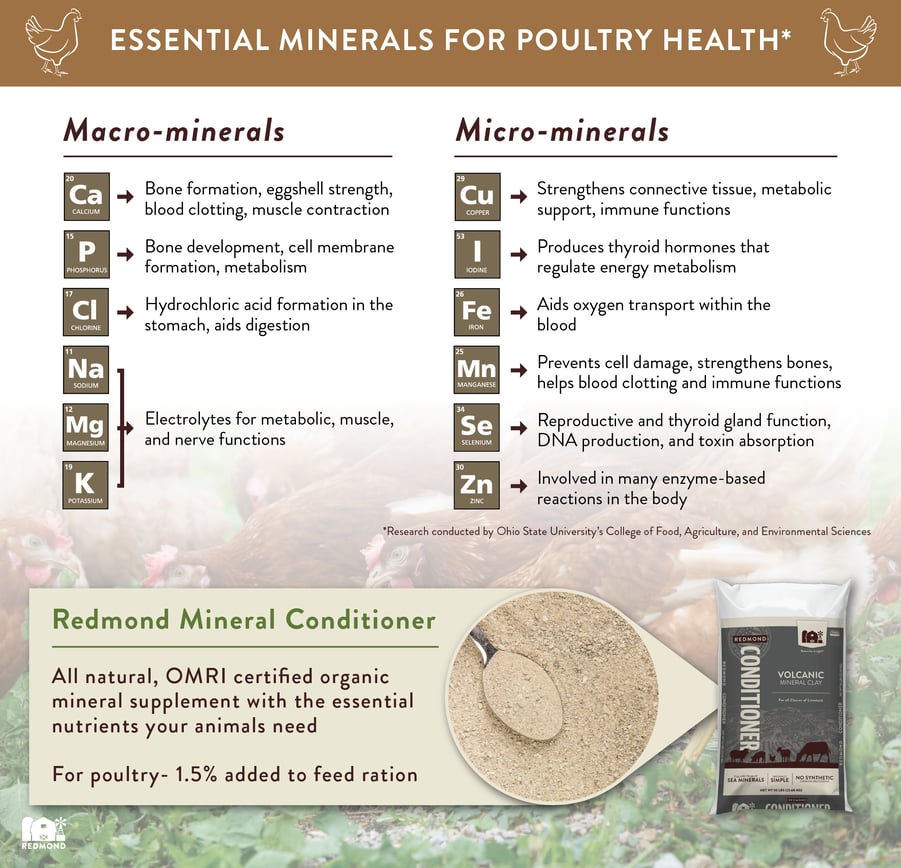1. Know Your Local Ordinances
Before you make any preparations or purchases, first you need to do some local research. Not every municipality allows residents to raise backyard chickens, and those that do, typically have some restrictions on numbers based on how many acres you have. Be sure to check with your local government as well as homeowner’s associations to learn the rules.
2. What to Know About Your Coop and Run Space
Chickens need a nesting coop/hen house as well as an enclosed run for outdoor time. Here are the typical space requirements:
- 3-4 square feet per chicken in the coop
- 8-10 square feet per chicken in the run
Nesting Coop/Henhouse
Here are the elements that healthy and happy chickens need in their their coop:
- Nesting Boxes- About 1 cubic foot nesting box for every 4 hens. Exterior doors at the back of the box will make egg collecting easier. Nesting boxes should be elevated off the ground.
- Bedding- Inexpensive and soft material such as hay or pine shavings that can be changed frequently (once a week) for cleanliness.
- Wooden Perch/Roosting Bar- Chickens prefer to sleep high off the ground, so they need some place to perch and rest. Wood surfaces are easier for them to grip than plastic or metal.
- Dropping Board- Chickens are messy animals and generate a lot of droppings. Placing some sort of board/pan/box below their roosting bar will make it easier to clean and collect manure for composting.
- Hanging/Elevated Feeder and Waterer- Once chickens are tall enough, keeping their food and water sources slightly off the ground will help them stay fresher and reduce pests.

Enclosed Run
Chickens need a place to stretch their legs, peck, scratch, dust bathe, and get some sun while still staying safe from predators. Fencing and chicken wire will help keep predators and mischievous pets out. If you live in an area with a higher predator population, you may consider partially submerging chicken wire to keep out diggers and using additional layers of mesh or screens.
3. What To Know About Predators and Pests
Most chicken owners are surprised at the number of animals that can prey on their flock. The list of predators will differ depending upon where you live, but here are the typical culprits:
- Rats (prey on chicks and eggs, can also attack and injure juveniles/adults)
- Cats and Dogs (domestic and stray/feral)
- Racoons
- Foxes
- Weasels
- Possums
- Coyotes
- Skunks
- Snakes
- Hawks
- Owls
- Bobcats
Chickens will require special supervision and living areas while they are chicks. The timeline for moving them to their coop/run area will depend upon their breed and how quickly they grow. Consult your chick provider to be sure you know when they will be large enough to safely move to their coop/run.
4. What To Know About Egg Laying
Egg Production
First things first, you do not need a rooster in order for your hens to lay eggs. You only need a rooster if you want eggs fertilized to hatch new chicks. In fact most chicken raisers have a strict “if it crows, it goes” rule for roosters to cut down on the noise.
Chickens are the most productive in the first 2 years of life. After that, their egg laying will likely slow down and you may need to start adding/replacing with younger birds. Some breeds are more productive egg layers than others. Consult your chick provider to learn more about which breeds they offer and what to expect for egg laying.
Hens need about 12-14 hours of daylight to lay eggs, making spring/summer/fall their most productive seasons.

To Refrigerate or Not To Refrigerate?
All chicken eggs naturally have a protective film or “bloom” that prevent air and bacteria from passing through the porous shell. Remember the cleaner your coop, the cleaner your eggs will be. Washing your eggs will strip away that protective bloom layer and then you will need to keep them chilled. If you would like to keep your eggs at room temperature, wash your hands instead of your eggs. Backyard laid eggs are safe at room temperature for about a month, but will taste the freshest in the first 2 weeks.
Massive poultry farms don’t pay close enough attention to nesting box cleanliness, so the USDA has strict rules for cleaning the eggs before consumers can purchase them. This cleaning process does wash away bacteria but also the protective bloom. That is why mass produced, store bought eggs must be refrigerated.
5. What To Know About Winter
If you live in a place with cold winters, extra steps will need to be taken to keep your chickens happy and healthy.

Warmth
The best way to keep your flock warm is to close/cover drafts down low but keep a small amount of ventilation up high to prevent mold and ammonia buildup. You can also deepen the shavings/litter for extra insulation, but will still need to rake and put fresh layers down. Adding dark materials to your coop exterior to absorb UV rays is another easy way to help make your coop cozier. Making sure their run has some solar exposure will give them a place to walk around and soak up some sun during the day. You can also give your chickens some scratch grains in addition to their regular feed to generate more body heat as they digest.
Lighting
Adding timed lights to your coop can help you hens continue to lay during the shorter daylight hours of winter. But be extremely careful when hooking up anything electrical in your coop. Hen houses are at high risk for fires due to curious chickens messing with electrical wires and lots of flammable materials.
Thawed Water
Make sure your chickens have access to thawed water every day. Some people prefer to use heated waterers (again be careful with electricity in chicken coops). There are some other non-electric tricks you can use to reduce the number of times you have to switch out their water. Try putting their water in black rubber dishes and set them out in the sun. You can also put some ping pong balls on the water surface for curious chickens to peck at and break up ice.
6. What To Know About Water, Food, and Minerals
Water
Did you know that eggs are mostly made of water? That means your flock’s egg production is directly tied to their access to plenty of fresh water. Chickens are notoriously hard on their water source and can dirty it really quickly. Watch their water carefully to make sure it is replenished and cleaned to prevent a slimy biofilm from developing. You will need to do more than just wipe and rinse, but also sanitize to kill harmful pathogens. Using a closed waterer and elevating it off the ground can help your chickens’ water stay cleaner for longer.
Food
Chickens have specific nutrition needs and should have a mix of protein, plant fibers, grains, and minerals (see below). The balance in their feed mixture will depend upon their age and what they are being raised for (meat or eggs). For example, if you are raising chickens for meat, they will need a higher protein ratio than egg layers. Be sure to carefully read through the instructions on your feed bags to purchase the right mix for your flock.
Giving your chickens access to insects and fresh vegetables is also a great way to give them extra nutrition and entertainment. Here’s a helpful tip! When you are ramping down your fruit/vegetable garden in the fall, let your chickens loose. They will helpfully peck, scratch, and rip out plants for you and give your garden plot a good debugging.
Minerals
A proper mineral balance will give your flock the building blocks they need for weight maintenance, disease prevention, egg strength, and general flock health. Ohio State University (College of Food, Agriculture, and Environmental Sciences) has thoroughly researched which minerals are most beneficial for poultry health. Their findings show that these “minerals play a role in bone formation, but minerals are also needed for several other important functions, including formation of blood cells, blood clotting, enzyme activation, and energy metabolism and for proper muscle function.”
Here is a list of essential minerals that your flock will need:
Macro-minerals:
- Calcium- proper bone formation, eggshell quality/thickness, blood-clot formation, muscle contraction
- Phosphorus- important in bone development, formation of cell membranes and is required for many metabolic functions
- Chlorine- formation of hydrochloric acid in the stomach and aiding digestion
- Magnesium/Potassium/Sodium- electrolytes important for metabolic, muscle, and nerve functions
Micro-minerals:
- Copper- strengthening connective tissue, metabolism support, and immune functions
- Iodine- required to produce thyroid hormones that regulate energy metabolism
- Iron- aids oxygen transportation within the blood
- Manganese- prevents cell damage, strengthens bones, helps with blood clotting and a healthy immune system
- Selenium- healthy reproductive and thyroid gland function, DNA production, and protecting the body from infection/free radicals, and other damage
- Zinc- involved in many enzyme-based reactions in the body

Redmond Mineral Conditioner
For over 50 years, farmers and ranchers around the world have enjoyed the great benefits naturally found in our mineral products. Redmond Mineral Conditioner is an OMRI certified bentonite clay and mineral supplement that you can mix right in with your poultry feed. With over 60 trace minerals, including all of the essential macro and microminerals listed above, you will notice better health, stronger egg shells, less disease, and happier animals.
Did you know?...Master Feeds of Canada conducted a study that found Redmond Conditioner reduced mortality rates in broiler chickens. Be sure to give Redmond a call today at  to learn more about our poultry products.
to learn more about our poultry products.
© 2023 Redmond Minerals Inc.
